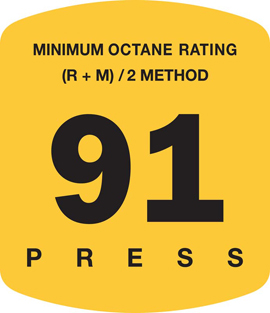Owners of German cars such as an Audi or Mercedes love the craftsmanship and quality of the car they are driving. Something they take with a pinch of salt is the need for premium fuel. That is going to cost a little bit more at the pump, and can be a little bit annoying. Owners will ask the question why it is so important that German cars require 91 octane or higher quality fuel. Why can’t lower, and cheaper, levels of octane be used?
 |
A very direct answer to the question is that German luxury cars are designed for higher octane. The cars have high compression engines for better performance and greater horsepower; these are the major reasons why premium octane is necessary. The uncontrolled combustion that will occur before the spark plugs cause a flame front is known as a ping or knock. Over time that can cause damage to the engine. Simply put, the octane rating of gasoline measures its ability to resist knock. The higher octane levels have greater stability and can prevent the premature detonation of fuel. Lower octane gasoline used in a German car is not able to resist knocking as well.
There is a lot of debate and discussion over whether or not the higher octane gasoline is more beneficial. The high octane is not going to have more energy capacity than regular. The main advantage of the higher octane is that it permits better resistance to knock, and this helps in engine design. Car manufacturers who insist on the higher octane compensate by designing engines that have maximum performance. More power can be pulled out of each gallon of gasoline, and the engine is not harmed by any premature fuel detonation. German engines are designed for the high performance and are calibrated for high-octane.
There is a temptation for a German car owner to get a little stubborn and use lower octane fuel. That is a bad mistake. Lower grade fuel being used in a car designed for higher octane level will gradually ruin the engine. Moreover, because a lower octane does not provide the same high levels of performance there can be fuel economy problems. The driver will actually get fewer miles per gallon by using lower octane in a German car, so that that the overall cost at the gas pump could be even higher.
The German car will adjust to lower octane fuel, but that
 |
will not stop the gradual damage to the engine. An owner who insists on using less than 91 octane will ultimately be confronted with a sizable car repair bill. That is a major reason not to use lower octane on German cars. A BMW or Mercedes is not a standard off the assembly line type of vehicle. Damage to the engine can result in a repair bill of thousands of dollars. Granted, the newer models are coming equipped with knock sensors but subtle damage is still being done to the engine block. Another advantage of higher octane fuel is that it’s cleaner than the ordinary lower octane. That will make it easier on the engine and other parts of the car as well. It really comes down to a trade-off. A German car owner can take a risk of using lower octane and saving a few pennies at the gas station, or use the higher octane and maintain the life of the engine for an even longer period of time. The time factor is something worth thinking about if a person has an older German car. The higher octane fuel is routinely recommended to help keep an older car running longer. That bit of knowledge makes using the higher octane and easier decision to make.
If you ask most German car owners why they have purchased their Audi or Porsche, the answer will come back as style and performance. The craftsmanship put into the car shows a style that’s a notch above the standard family car. The performance of these vehicles is something the owners truly enjoy. The ability to drive a car that has considerably more horsepower is a pleasure that German car owners cannot deny. That and being able to extend the life of the car engine for additional years are both justifications for paying a little extra for the high-octane gasoline.
